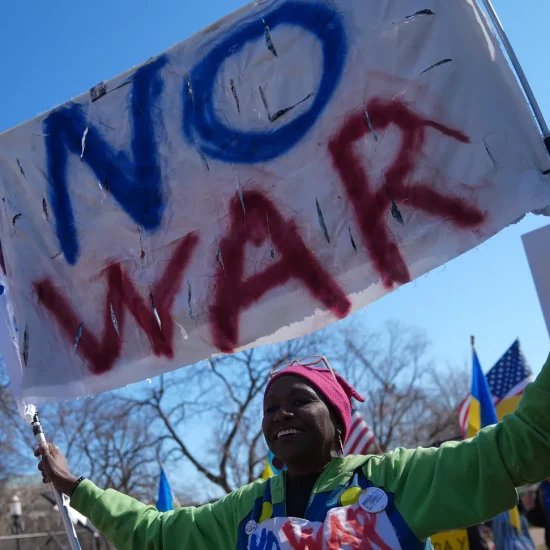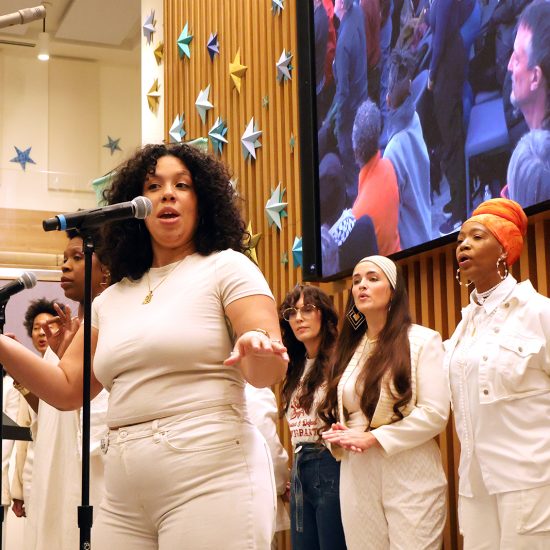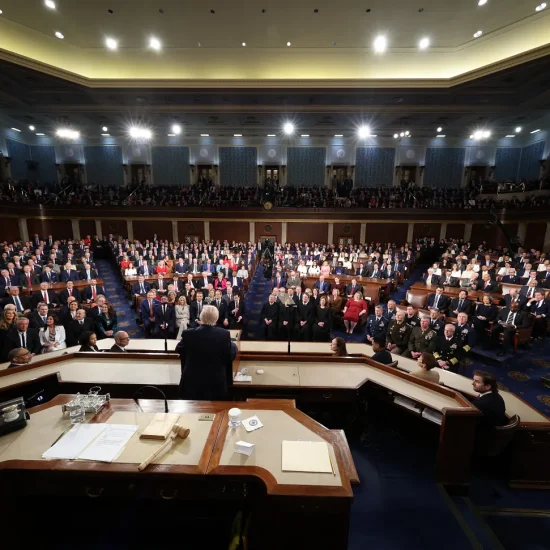
It sounds like the start of a joke: Mennonites versus Homeland Security. Which side will you take?
That’s a shorthand way to refer to a new lawsuit filed this week by 27 religious groups in an effort to protect houses of worship from immigration raids after the Trump administration rescinded a policy barring operations by Immigration and Customs Enforcement agents or by Customs and Border Protection agents in “sensitive” or “protected” places like houses of worship and schools. With so many parties involved in the suit, the official name is shortened to include just the first plaintiff and the first defendant. So we now have Mennonite Church USA et al. v. U.S. Department of Homeland Security et al.
It could perhaps be said that Mennonites have been rejecting homeland security since 1525. As Rev. Iris de León-Hartshorn, associate executive director of operations for Mennonite Church USA, said in a statement about the suit: “Today, we stand together as followers of Jesus, shaped by his life and teachings as revealed in Scripture, honoring the cloud of witnesses that stood before us against state interference in the right of religious freedom during the Radical Reformation.”
Joining the Mennonites in the new suit are several other mainline Protestant groups like the African Methodist Episcopal Zion Church, Christian Church (Disciples of Christ), Church of the Brethren, Episcopal Church, General Assembly of the Presbyterian Church (U.S.A.), and some regional United Church of Christ and United Methodist Church bodies. Additional plaintiffs include a Hispanic Baptist convention in Texas, multiple Jewish groups, the Unitarian Universalist Association, and the state council of churches for Massachusetts, New York, North Carolina, Rhode Island, and Wisconsin.
“The massive scale of the suit will be hard for them to ignore,” Kelsi Corkran, a lawyer with the Georgetown University Law Center’s Institute for Constitutional Advocacy and Protection and lead counsel for the new lawsuit, told the Associated Press.
And while the Trump administration may well try to ignore the litigation, it certainly is significant as so many Christian denominations and other religious groups take the administration to court to block ICE or border agents from storming houses of worship. At the same time that Trump claims he’s creating a task force to fight “anti-Christian bias,” Christian groups are requesting protection from Trump’s administration. So this issue of A Public Witness looks at the growing litigation attempting to put church raids on ice.

(Julia Demaree Nikhinson/Associated Press)
Quakers and Baptists and Sikhs, Oh My!
This week’s lawsuit is the second by religious groups challenging the Department of Homeland Security for removing its prohibition on operations in protected places. Several associations of Quaker congregations filed a suit on Jan. 27. Last week, the Cooperative Baptist Fellowship and the Sikh Temple of West Sacramento, California, joined as parties to the case. Since Quaker groups often use the word “Friends” to describe themselves, let’s shorthand this case as Friends versus Homeland Security.
“The troubling nature of the policy goes beyond just houses of worship with sanctuary programs — it is that ICE could enter religious and sacred spaces whenever it wants,” argued Skye Perryman, president and CEO of Democracy Forward (the group providing the lawyers for the case).
The suit from Quakers, Baptists, and Sikhs notes that “communal worship is fundamental to the religious exercise of many.” Thus, the groups argue that authorizing ICE agents to enter houses of worship infringes on the First Amendment rights of religious groups and also violates the Religious Freedom Restoration Act.

The rest of this piece is only available to paid subscribers of the Word&Way Substack newsletter A Public Witness. Subscribe today to read this essay, gain access to all previous issues, and receive future ones in your inbox.






